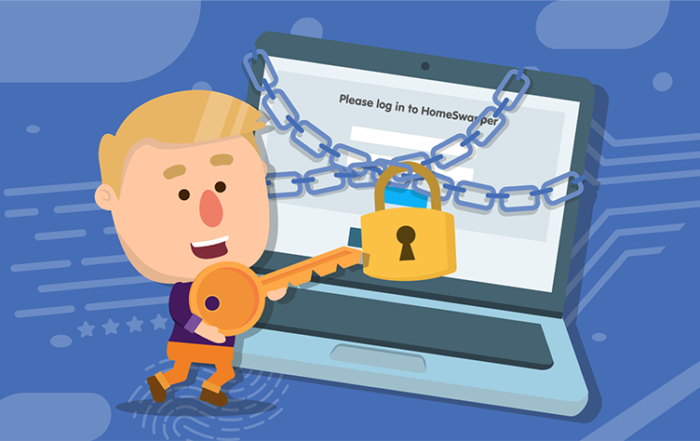
If you are an adult it is likely that you have a credit score. Why is it important? What is it? And how can you look after yours?
Why it’s important
These days, many companies who lend money or offer important services such as home rental, gas & electricity and even mobile phones, want to understand their customers and their financial ability. One of the ways they can do this is by checking your credit profile.
What is it?
It’s a publicly available record of your financial history and there are a couple of services that connect thousands of companies and banks to millions of customer payment records. They also carry public record information from things like the Electoral Register.
The type of information that a credit score takes into account are loans, mobile phone contracts, utility bills (electricity, gas etc.) and credit cards. If you don’t have an established credit report it can make it difficult to prove your identity or access credit and loans.
Even if your credit score is a little low, there are some proactive steps you can take to improve it, which will have the long-term benefit of giving you access to more services.
We’ve taken a look around and here we’ll give you a few ideas of how you can give it a boost…
First things first… a quick guide to the terms:
Credit: being able to get services or goods before payment – it’s essentially a form of debt and could include loans, mortgages and credit cards
Credit score: a number and report that gives organisations an idea of what your overall credit report and financial history means
Credit report: a detailed breakdown of your credit history that you can get
Credit agency: the organisations that work out and hold your credit report, e.g. Experian
Electoral register: when you register to vote you will be put on the electoral register
Lenders: any person or organisation that might lend you credit. This could include banks, loan companies, mobile phone companies, etc.
Your credit score
Lenders and organisations use this as a way of seeing how you have behaved with money in the past to show how you might behave in the future. The last six years of financial decisions you’ve made will help to decide the score, but your most recent behaviour will have the most impact upon whether you can access credit, such as loans, mortgages and credit cards.
An easy way to access your credit score is by signing up to the Credit Club. It’s completely free and will give you a look at what your score is likely to be, as well as suggestions on improving it. Other services include Experian, Clearscore and Equifax also have free services that you can upgrade if you want more information on yourself. All these services can help you understand how people make their decisions and if you’re being rejected, can also help you understand why.
Information your credit score will include:
– Your date of birth, full name and address
– Whether you are on the electoral register
– Credit card and other loan balances and your monthly payment history
– Financial links you have to other people, for example a joint account
– Credit applications you have made in the past
– If you have declared yourself bankrupt
Information your credit score will NOT include:
– Council tax arrears
– Some utility and other companies
– Medical history
– Student loans
– Driving fines
– Criminal record
Different lenders have different criteria as to whether they will lend you money or not. If you have been rejected by one lender, it doesn’t necessarily mean that another lender will also reject you. If you want to apply more than once though, make sure you’ve checked your credit for errors before applying again, as each time you apply, the company that does a search may leave a record, which could affect your score. Everybody has the legal right to see a copy of their credit report for free – just request it from any credit agency that holds your information, such as Experian.
How to look after your credit score
Being accepted for credit cards and loans and the rate that your lender gives you is dependent on you credit score. Here are some ways of giving it a bump:
Check for mistakes on your credit report
You can access this information and report any errors for free, so it’s worth doing. You may be registered at an old address and a small detail like that can affect your score. Once you have contacted the credit reference agency and asked them to change a detail, they have 28 days to remove or amend the information.
Check for fraudulent activity
See if somebody has applied for credit in your name without you knowing and make sure you report it.
Don’t apply for credit too often
Each time you apply for a mobile phone contract, insurance or loan it adds a footprint to the amount of credit you have tried to access that year. Try to keep it to what’s absolutely necessary and check with the company if they will leave a mark on your record.
Check if you are linked to another person
A joint account with someone with a poor credit rating or history of not paying their bills on time could negatively affect your own credit score.
Register yourself on the electoral register
This one is really important and you can do it on the government’s website here.
Try not to withdraw cash on your credit card
Even if you pay it off on time each month, many lenders frown upon this.
Sign up for The Rental Exchange:
One of the most important tips we wanted to share was signing up for The Rental Exchange. Around 5.4 million households rent in the UK and it only makes sense that your biggest regular outgoing each month should count towards your credit score.
The Rental Exchange It is a secure database that holds your rental payment information and makes it publicly available to lenders as part of your credit score. In order to sign up you need to pay your rent via direct debit and then pay your rent on time. It is important because it’s a way for rental tenants to improve their credit score without having to make any changes to their situation.
If you receive Housing Benefit that is paid directly to your landlord, you will not be able to apply for rental exchange. However, all those who are on Universal Credit and pay their rent themselves to their landlord can go on The Rental Exchange.
Currently Experian is the only agency that includes rental payment information on credit scores but other agencies haven’t ruled it out in the future. 150 social housing providers are already part of the scheme, so check with your landlord if they’re one of them. If they are, your rental information will be being automatically recorded. If your landlord is not signed up to the scheme you could either request that they join up and register your payment information or just register yourself.
You can do that at:
If you reliably pay your rent on time this can be the most effective way of improving your credit score. It is an easy and free step that recognises the contributions that you make and steadily improves your credit score.
So, what are you waiting for? Now that you have all our tips you can make sure that you’re making the best impression when applying for credit!
Other useful links:
Money Advice Service has free advice and tools to help manage your money
Citizens Advice Bureau is free and open for anyone to get help on many different financial matters
StepChange is a debt charity that offers free online advice and help
National Debtline is an online service with advice, tools, templates and web chat to help you deal with debt
The HomeSwapper Customer Support team are always on hand to give advice and tips on how to get the most from HomeSwapper. They deal with Swappers every day and have a unique insight and view on the thousands of successful swaps that take place on HomeSwapper.






